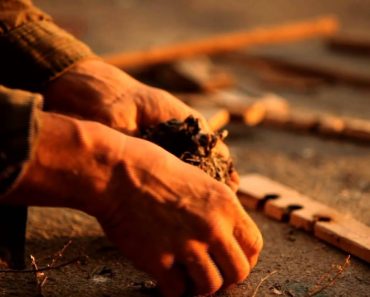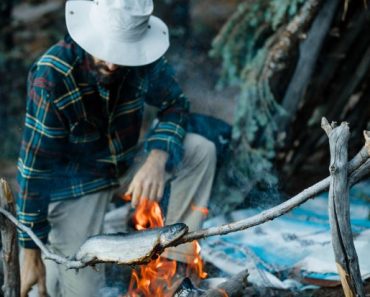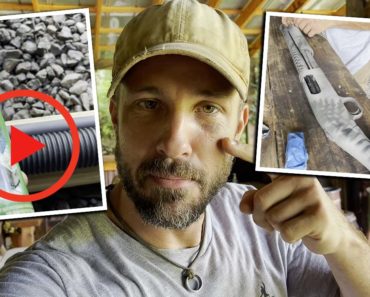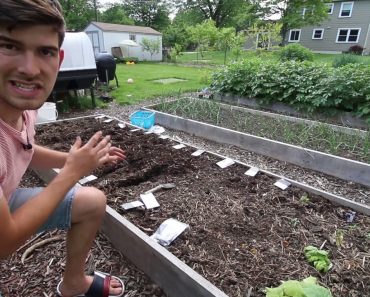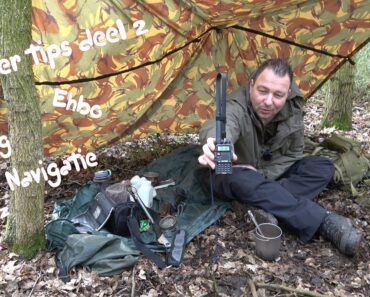A few years ago, I was surprised when a woman knocked on my door, presenting me with a court summons for divorce proceedings. I had just come back to town from a missions trip, and while I was gone, the woman who was my wife at the time filed for divorce. She never stated her reasons but wasn’t required to, as the state we lived in had what is known as “no-fault divorce.” Another part of that was that I didn’t even have the option of fighting it. The court was merely a formality, with our lawyers haggling about the division of property.
Skipping over a lot, I had five days to move out of the house, and a few months later, the divorce was finalized. As in many divorce cases, she got everything but my clothes, a few pieces of furniture, things associated with my work, my tools, and my car (the engine of which had blown). Putting that another way, she had the house and all the prepping projects I had done, as well as the stockpile of food and other supplies. As far as survival was concerned, I had my BOB, my EDC, and my guns.
In other words, after years of preparing that home for survival, I had to start all over again.
I’m not relaying this story to garner sympathy from anyone. I landed on my feet, have remarried a wonderful woman, and just last year, we bought ourselves a beautiful house in a small town. I’m actually better off than I was before. But I still had to start over.
3 Second SEAL Test Will Tell You If You’ll Survive A SHTF Situation
I couldn’t start over right away, and perhaps that’s for the best. At first, I was living with one of my daughters and her husband, who graciously took me in. While that gave me a roof over my head and enough room for an office, I didn’t have room to begin stockpiling much of anything at all. There wasn’t even enough room for my tools, which I had to store elsewhere. I became one of those people who ran to Wal-Mart when a hurricane was heading our way. Not that I wanted to be that way, but I had no other choice.
A year later, I remarried; but that didn’t mean that I could start prepping again, other than stocking a small pantry. My new wife lived in a small apartment, and we stayed there for the first year and a half of our marriage. When COVID hit, I was only a few days ahead of everyone else that was rushing to stock up, as it took me a few days before my brain caught up with the idea that I didn’t have six months worth of food and supplies in my home.
So, why do I bring all this up?
Well, I’m sure that I’m not the only prepper that has had to start over again. Maybe those others didn’t have to start over because of a divorce; it could have been being forced to move for their job or having their home destroyed. I’m sure that any preppers who had lived in Paradise, California, had needed to start over after the Camp Fire burned down their home and their town in 2018.
Like everything else, starting over has been a learning experience. Perhaps these lessons will help others who find themselves in the same or a similar situation.
Get Yourself Together
Before you even think about starting to prep again, you need to take some time off and get yourself together. I needed that, even though I’ve been a survivalist for forty-some years and writing about it for over a decade. The reality is that any life-changing event takes some time to adjust to, and we all need that time.
The big problem is that if we don’t give ourselves that time, we’re going to end up making illogical decisions based on our emotions. Since this is the second time around for us, we should be able to do things better than the first time; but if we’re not firing on all eight cylinders, we’re not going to be able to do better. We probably won’t even be able to remember the lessons that we learned the first time around and may very well end up repeating the same mistakes.
You’re probably going to feel like you’ve got to rush right back into prepping, feeling insecure because of what you’ve ended up losing in the transition. But you still have more than you realize; you just need to give yourself the time to realize it.
A positive mental attitude is always an important part of survival, whether someone is trying to survive cancer or trying to survive the types of disasters you and I prepare for. So part of getting yourself back together is redeveloping your positive mental attitude if something has happened to damage it. Don’t trust your own judgment on whether or not your attitude is okay; ask someone close to you to verify it, just to be sure. You don’t want to fool yourself.
Once a Prepper, Always a Prepper
The one thing you haven’t lost is that you’re a prepper. You weren’t a prepper because you had a stockpile of food; you had a stockpile of food because you were a prepper. Just because you’ve lost that, along with anything else you lost, you haven’t stopped being a prepper.
What makes you a prepper? There are two things. The first is the mindset that you will prepare to be self-sufficient, rather than depending on the nanny government taking care of you. That hasn’t gone anywhere; you’ve still got it. Granted, being self-sufficient is a little more difficult when you don’t have the equipment and supplies to work with, but if you’re really self-sufficient, you’ll figure out how to get them.
The second thing that makes you a prepper is your knowledge. You’ve invested time and effort into learning how to survive. That knowledge is still in there unless you happened to have a lobotomy. It is that knowledge that is going to make it easier for you to start over than it was prepping the first time.
For that matter, this is a great time to work on reviewing your survival skills, especially bushcraft and wilderness survival skills. Use what you have rather than worrying about what you don’t have.
Get Your Family On-Board
It’s possible that whatever major life situation has struck has left you with a changed family situation. That doesn’t always happen, but it sure did to me. When it does, you can’t expect your new family members to suddenly be on-board with the idea of prepping. You’re probably going to have to sell them on it. Fortunately, everything that has happened in 2020 and 2021 makes prepping a much easier sell than it was in 2019.
Of course, chances are pretty good that they’re going to have a mistaken idea of what prepping is. Television programs on prepping and survival haven’t done us any favors. So part of the process is educating them about who preppers are and what they do.
One thing that should help is the examples of how prepping helped you get through the various disasters that have struck. It can also be helpful to start talking about the impact of different world events on your lives, especially if you can do so before the impact is felt. For example, the Russian invasion of Ukraine means that two of the world’s biggest wheat producers are most likely out of business for this year. That’s going to raise wheat prices, which affects a lot of different things we eat. Your ability to predict such things will help them see the value of being ready for them.
Prioritize – You Can’t do it All at Once
You’re going to quickly find yourself overwhelmed with everything that needs to be done. It will actually be worse, as an experienced prepper, than it is for new preppers, as you will be comparing where you are to where you were before. Until you get back to that point, there’s a tendency to feel like you’ve failed. Don’t let that feeling drive you.
The only practical way to prep is to prioritize, and the basis for that prioritization has to be our survival priorities. Your home provides shelter, but is it ready to provide it when the grid goes down or after a major storm? If not, your first priority might actually be installing a wood-burning stove, not buying rice and beans. What about water; do you have a plan for that? Then, of course, there’s the need to stockpile food; but even there, prioritize what will give you the most bang for your buck. The rest can be filled in later.
I’ve been in my home for eight months now, and there are still many things I haven’t done, many of the things I had in the old house. Hopefully, I’ll get a few fruit trees in the ground and start a garden this year; but I expect it to take me about four years to get back to the gardening level I was at before.
On top of prepping, there are probably other things you’re going to have to do in your new home. Unless you had a home custom built for you, there are always projects that go with buying a house. Don’t ignore those to prep. Prepping is long-term, and you’re not going to win your family over by ignoring things like painting and repairs so that you can focus on prepping.
Keep in mind that there are lots of tools you can use for rebuilding your stockpile at a reasonable cost. That’s especially important now, with food prices going through the roof. But by doing things yourself, buying in bulk, and taking advantage of sales, you can do a lot to save money on the things you need.
Work on a Two or Three Stage Plan
One of the most helpful things I’ve discovered is working on a layered plan. What I mean by that is not trying to reach my end game in any one area of prepping; but rather to work something out for now, with a plan on improving on it in the future.
We talk about this sort of philosophy when it comes to buying food for our stockpile. New preppers ask how they can build a 12 month supply of food, and we tell them to work on just buying one month’s worth. Once they get that, they can work on the next months, and so on. Well, that same plan can be put to work in other areas, coming up with an interim solution to the need.
Take water, for example. Your ideal solution might be to put in a well, but that costs a lot of money. Okay, so put in rainwater capture for now, with the idea of putting in the well later. That rainwater capture may not be as good a solution for you, especially if you live in an arid part of the country, but at least you’ll have some water.
This same thing can be applied to heating your home, off-grid electrical power, building a survival garden, and so many other areas. The main thing is to get something in place that will work while you’re waiting for the time and money to do a better fix. In the end, you’ll end up with more, and in the meantime, you’ll at least have something.
We’re Living in Different Times
Finally, we need to realize that we’re living in different times than what we probably were when we started prepping. Before 2020, we were all prepping for some TEOTWAWKI event. One of those scenarios was a pandemic. Well, we’ve had the pandemic, along with a whole bunch of other disasters while the pandemic was going on.
We live in a time where it seems like we’re dealing with one disaster after another. While all of those disasters don’t strike in all parts of the country, enough of them do keep us on our toes.
This has changed prepping, at least for me. I find myself constantly working on building my preps while I also need to use those preps. Shortages in the stores are going to make that a reality for some time to come, forcing us to keep rotating our stockpile, as we use things when they are not available in the stores and then stock up when they reappear on the shelves.
There’s nothing wrong with using your preps when you need to; that’s what we’ve got them for. Yet I know a number of preppers who were lamenting that they couldn’t buy the food items they wanted to when the first panic wave hit the grocery stores, emptying the shelves. I had to remind them that pandemics were one of the disaster scenarios that they had prepared for, so it was alright to use their stockpile, just as long as they restocked when they could.
It looks like that’s the way things are going to be from now on, or at least for the next few years. Don’t be afraid to use what you have; just make sure that you restock when you can.


